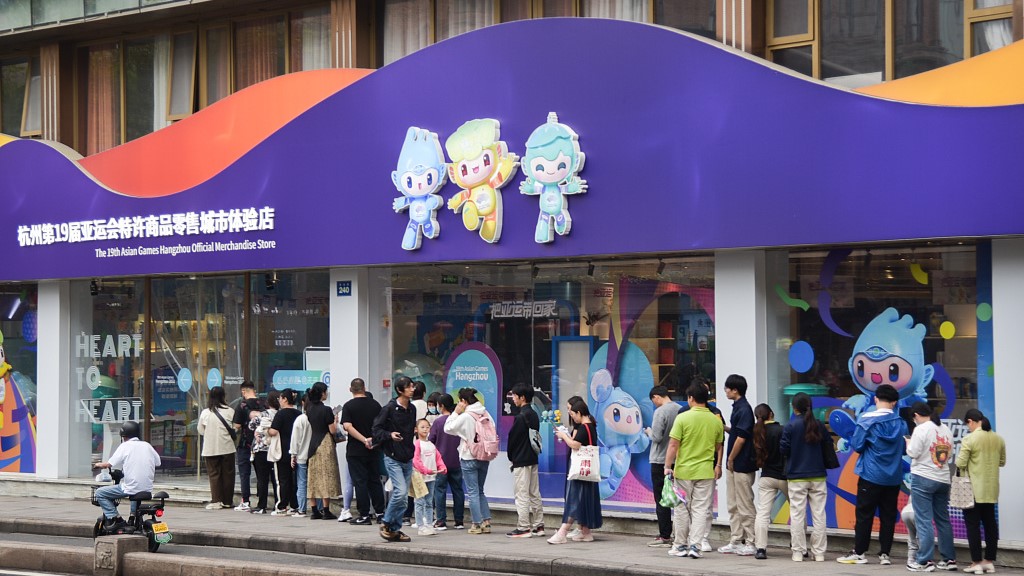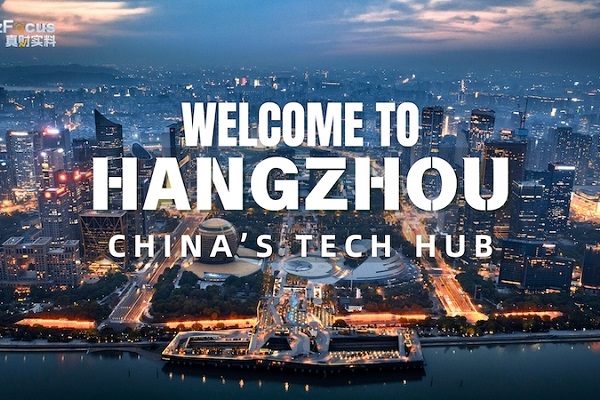Asiad Economy| How the Asian Games is boosting Hangzhou's local economy

People stand in line to purchase the Hangzhou Asian Games mascot in Hangzhou, the capital of China's Zhejiang Province, September 24, 2023. /CFP
Large international sporting events are known for boosting a city's reputation, stimulating economic growth, and promoting infrastructure development. The ongoing 19th Asian Games in Hangzhou is no different: it has brought prestige to the city on top of the significant economic impact.
The Games, taking place from September 23 to October 8, not only features the largest number of participants in the event's history but is also boosting the city's local economy in a variety of ways.
Notably, Hangzhou, the birthplace of tech giant Alibaba, has capitalized on its status as an internet hub by embracing sports digitalization.
In a groundbreaking move, the Games has fully embraced cloud technology, making it the first-ever "cloud-based Asian Games." It means that cloud services have replaced traditional data centers, eliminating the need for temporary server rooms for live broadcasting of sports events.
The underlying computing and storage capabilities of the cloud platform can be fully utilized when the Asian Games runs on a fully cloud-based operating system, Liu Weiguang, vice president of Alibaba, said in an interview with CGTN.
Cloud services increase the efficiency of sports commentary, analyses and livestreaming at the Games, providing a more optimal viewing experience, Liu added.
To further enhance the sports experience for Hangzhou residents, the city has used AI technology to provide a range of convenient functions, including reservation, payment, and video tutorials, across 36 public sports venues, 83 municipal fitness centers, and 134 private fitness locations.
According to data from Zhejiang provincial authorities, investment in preparation for the Asian Games between 2016 and 2020 contributed approximately 414.1 billion yuan ($56.65 billion) to Hangzhou's local economy, accounting for 7.6 percent of the city's overall growth.
Preparation for the event also created around 670,000 jobs, representing 2.4 percent of the total local employment during the same period.
Seizing the opportunities presented by the Asian Games, Hangzhou has actively improved its urban infrastructure and enhanced the well-being of its residents.
By the end of 2022, over 1,057 old residential neighborhoods had been renovated, benefiting more than 410,000 households.
The Hangzhou Asian Games is also expected to attract a record number of tourists, with Hangzhou's cultural and tourism big data center forecasting over 20 million visitors during the event.
-
Xixi Wetland invites visitors to Huazhao Festival
March 25, 2025
-
Hangzhou sets standard for concert hosting
March 19, 2025
-
What is making Hangzhou the new tech powerhouse of China?
March 10, 2025
-
Inside Hangzhou: China's high-tech dream factory
March 12, 2025



